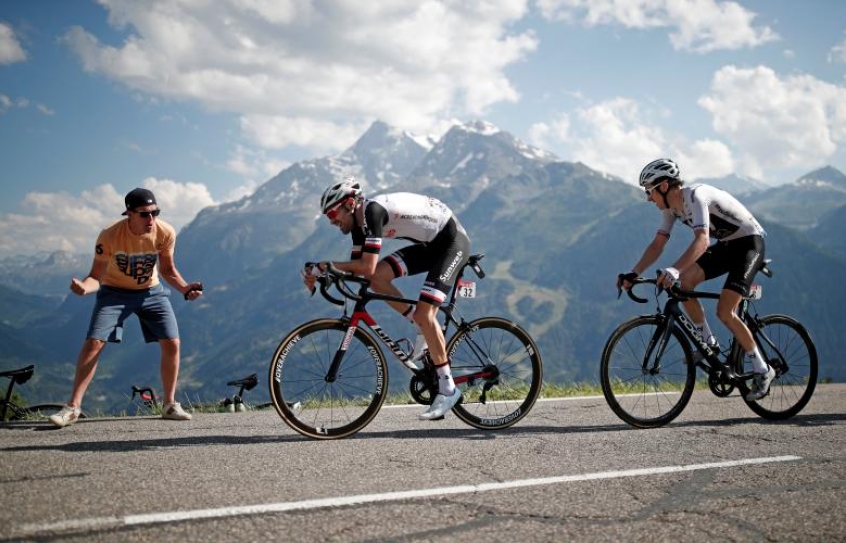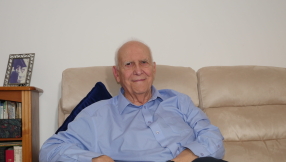Wimbledon is over, the World Cup is done. The European Athletic Championships are not yet upon us. And so my sporting attention has turned to that most gruelling of events, the Tour de France.
The Tour is three weeks of cycling, travelling up to 180km a day and ascending to over 2000 metres – sometimes in the same day. It is a race for the fit and the fierce. People have died going up and coming down, injuries are frequent and at the end, the prize is a place in sporting history.

I have found myself drawn in to the race once again this year. Despite the controversy over drugs and rumours of drugs, I am wondering if the art of the cycling hill climb might have something to teach us about being disciples.
1. Know that it is coming Those who choose to enter the cycling world know that hills, and all the muscle- searing, lung-burning pain that they imply, are part of what it means to race. We don't have to look far for a comparison in our discipleship. Jesus was clear with his disciples that the call to follow him would mean difficulties. 'Whoever wants to be my disciple must deny themselves and take up their cross daily and follow me' (Luke 9: 23). I think sometimes we forget that discipleship is hard, so we find ourselves at the foot of a metaphorical hill wondering how we got there. We do not invite, but we do expect, struggle.
2. Train for it No one rolls up to the start of the Tour de France without training. Professional cyclists train hard and they train smart. They learn about technique, but at the end of the day the ones that make it know more than what they find in a book – they know themselves. They know when they are having a good day or a bad day and they can adjust their work rate accordingly. That comes through training.
Discipleship takes training. It takes knowing the techniques (for us, spiritual disciplines of prayer, study, Sabbath and fasting are all part of our training). It takes knowing ourselves. And all of that takes time and effort.
3. Staying in the pack When there is a big hill climb at the end of the day, the best racers look after themselves in the earlier parts. They stay tucked away in the pack (where air resistance means that it takes less than half the effort to go at the same pace) and they fuel themselves. There are times when we as disciples would do well to do the same. For much of life's race we need to be surrounded by others in order to get by. In cycling, someone in the team makes sure all the riders get enough food and drink. As disciples we need to be in groups that make sure we are well fed for the climb ahead.
4. Eyes on the prize Anyone who has ever cycled uphill can feel some empathy with a pro cyclist as they weave and wobble on a 12 per cent gradient, desperately hanging on for a less steep moment. Often there is a crowd that is close by, seemingly cheering them on. I wonder if they are often more like Job's friends – well-meaning but not really helpful. What seems to genuinely spur the riders to the top are two things. One is knowing that they have trained for this and the other is visualising and knowing some kind of prize at the end. And often that prize is not the fabled yellow jersey, but a loved one, or a hot bath.
As disciples we will face hill climbs that make us wobble and weave. We will be spurred on by the crowd who are often well-meaning but unhelpful. At our best we have trained for this and can draw on all that resource. But we also have a prize – the normal human things of a problem resolved, a relationship healed, but also the ultimate promise of our resurrected life in the presence of God.
5. This too shall pass As I write there is one more mountain stage in the Tour de France. In four days it will all be over and there will be rest for the riders before the training starts again. As they ascend tomorrow the riders will know that painful as it might be, this too will pass.
Disciples: we have mountains to ascend. But they too shall pass.
Rev Jude Smith is the team rector of Moor Allerton and Shadwell in North Leeds. Follow her on Twitter @gingervicar













